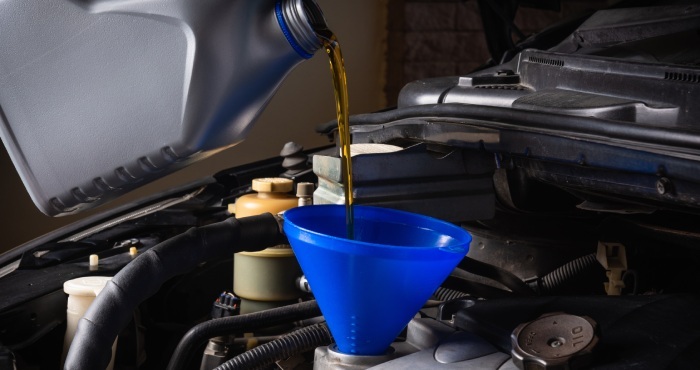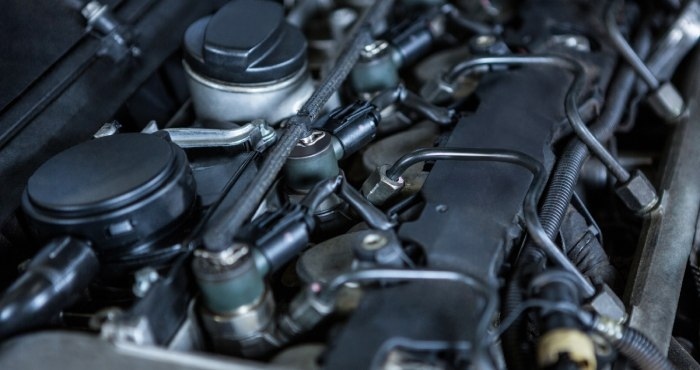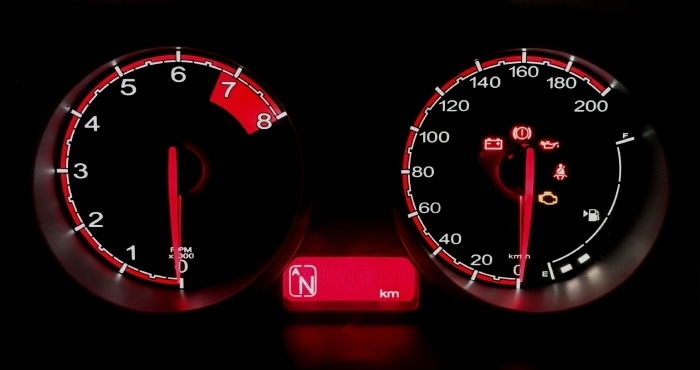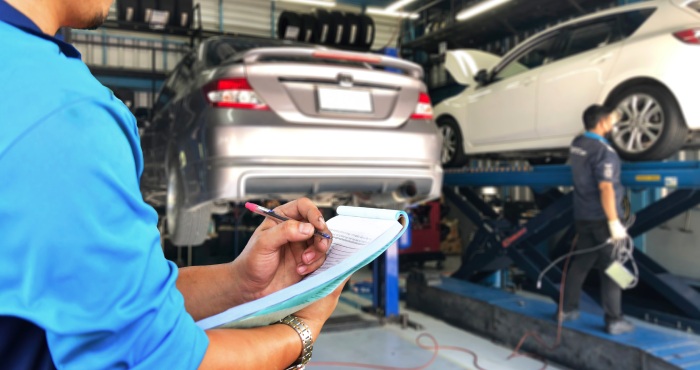When acquiring a new or pre-owned vehicle, you anticipate it to operate efficiently and dependably. Nonetheless, if you notice high oil consumption, it could signal serious mechanical problems that suggest your vehicle might be faulty. While a certain amount of oil usage is typical, excessive oil burning can result in expensive repairs, engine breakdowns, and safety risks. Should your car show significant oil consumption and the manufacturer does not resolve the problem, you might have the basis for a Lemon Law claim.
This article will examine the indicators of excessive oil consumption, its underlying causes, its impact on vehicle performance, and the appropriate time to consult a Lemon Law attorney to safeguard your rights.
Understanding Excessive Oil Consumption
What Is Excessive Oil Consumption?
When a vehicle experiences high oil consumption, it means that it is using or losing oil more quickly than what is typically expected. Today’s engines are engineered to keep oil levels steady between routine oil changes, so needing to frequently add oil shouldn’t be the norm. Although manufacturers set parameters for acceptable oil use, regularly having to top off oil before the next scheduled maintenance could indicate a potential mechanical problem.
This issue might arise from worn-out engine parts, defective gaskets, or internal leaks that cause oil to either burn off or leak out prematurely. Neglecting the signs of excessive oil consumption can result in diminished engine efficiency, higher emissions, and expensive repairs. If you find yourself adding oil often or noticing low oil levels unexpectedly, it’s crucial to identify the root cause quickly to avoid serious damage to the engine in the long run.
Causes of Excessive Oil Consumption
A variety of elements may lead to high oil usage, such as:
- Flawed Engine Parts: Ineffectively engineered piston rings, valve seals, or cylinder walls can permit oil to infiltrate the combustion chamber. This results in excessive oil burning, which diminishes engine efficiency and escalates emissions.
- Degraded Piston Rings: Degraded piston rings can no longer effectively seal the combustion chamber. Consequently, oil seeps past the rings and ignites, leading to an increase in oil consumption beyond normal levels.
- PCV Valve Issues: A malfunctioning Positive Crankcase Ventilation (PCV) valve may contribute to higher oil usage by not managing oil vapors effectively.
- Oil Leaks: Minor leaks from gaskets, seals, or the oil pan can gradually deplete oil levels over time. If these leaks are not addressed, they can cause engine damage due to a lack of proper lubrication.
- Turbocharged Performance Engines: Turbocharged engines naturally consume more oil; however, if the consumption is excessive, it may signal a failing turbo seal or an internal engine problem. It’s essential to keep an eye on oil levels in these engines to avert serious mechanical issues.
- Production Flaws: Certain vehicles may experience manufacturing flaws, such as inadequately designed engine parts or inferior materials. These defects can lead to unusual oil consumption, necessitating frequent refills and expensive repairs.
Signs of a Defective Vehicle Due to Excessive Oil Consumption
Frequent Oil Top-Ups:
If you find yourself needing to top off your oil frequently between regular changes, it could signal a problem with your engine. Today’s vehicles are built to keep oil levels stable without the need for constant additions. If you’re adding oil every few weeks, it likely points to an issue.
Dashboard Warning Lights:
If you notice that the low oil pressure or check engine light is frequently activated, it suggests that your vehicle is consuming oil excessively. This can mean your oil levels are critically low. Ignoring these alerts could result in significant engine damage.
Blue or Gray Exhaust Smoke:
Seeing blue or gray smoke coming from the exhaust is often a sign that oil is being burned. This occurs when oil seeps into the combustion chamber. An increase in smoke can indicate that engine parts are worn out.
Poor Engine Performance:
Excessive oil consumption may lead to rough idling, sluggish acceleration, and misfires. Oil buildup can clog spark plugs, negatively impacting engine performance. If not addressed, this can result in expensive repairs down the line.
Unusual Engine Noises:
Sounds like knocking or ticking coming from the engine may indicate a loss of oil and inadequate lubrication. When there isn’t enough oil, metal components can rub against each other, resulting in damage. Tackling oil-related problems promptly can help avert significant engine breakdowns.
Increased Fuel Consumption:
When an engine burns too much oil, its efficiency declines, which can result in higher fuel usage. Over time, you might observe a decrease in your vehicle’s mileage. This could be a sign of internal wear or potential leaks within the engine.
How Excessive Oil Consumption Affects Your Vehicle
Engine Wear and Shortened Longevity
Using too much oil can increase the stress on the engine, leading to quicker deterioration. Inadequate lubrication can result in significant harm to internal parts. Consequently, this could result in expensive repairs or potentially necessitate a complete engine overhaul.
Failure of Emission Systems
Excessive oil consumption can harm essential emission control elements, such as the catalytic converter and oxygen sensors. If these components are damaged, it can result in failures within the emissions system, leading to decreased efficiency and heightened pollution levels. Fixing or replacing these parts can be costly and might compromise the vehicle’s adherence to regulatory standards.
Increased Safety Hazards
Insufficient oil levels heighten the chances of engine failure while on the road, which could lead to unexpected breakdowns. An engine that stalls or fails in heavy traffic poses serious risks for both the driver and fellow motorists. This creates a safety concern that can result in accidents and expensive emergency repairs.
When to Contact a Lemon Law Lawyer
If you’re experiencing high oil consumption and the manufacturer or dealership hasn’t resolved the problem, it could be time to reach out to a California Lemon Law attorney. Here are some important signs that suggest you may need to take legal steps:
Your Car is Still Covered by Warranty
If your vehicle remains under the manufacturer’s warranty, it shouldn’t experience significant oil consumption. If you’ve tried repairing the problem multiple times without success, you might be eligible for compensation under Lemon Law, which could lead to a refund or a replacement vehicle.
Manufacturer Denies the Problem
Certain manufacturers assert that high oil consumption is typical and dismiss the concern. Nevertheless, if this issue is impacting your vehicle’s functionality, it’s important not to overlook it. You may need to pursue legal action to ensure the manufacturer is held responsible.
Repeated Repair Attempts Have Not Succeeded
Should your dealership have made multiple attempts to fix the problem without success, your vehicle might be classified as a lemon. Ongoing issues with excessive oil usage, despite efforts to repair, bolster your argument. You could qualify for a refund or a replacement under California Lemon Law regulations.
Your Car Is Frequently in the Repair Shop
If your vehicle is frequently in the shop for repairs, it may be protected by Lemon Law provisions. Long durations of unsuccessful repairs suggest a significant defect. If your car has been out of commission for an extended period, you could have a legitimate claim.
You Have Experienced Financial Hardship
Frequent oil consumption can create financial difficulties due to constant oil changes and repair expenses. This issue can also decrease your car’s resale value, resulting in additional losses. If you have faced financial challenges because of this, you might be eligible for compensation from the manufacturer.
Steps to Take Before Filing a Lemon Law Claim
- Keep Thorough Records: Maintain comprehensive documentation of all repair orders and invoices pertaining to your vehicle’s oil consumption issues. Record any interactions with the dealership or manufacturer regarding unsuccessful repair efforts. These documents will bolster your position if you decide to file a Lemon Law claim.
- Track Your Oil Consumption: Make it a habit to regularly monitor and log your vehicle’s oil levels to detect any excessive usage. Keep track of how frequently you need to add oil and the mileage accumulated between each refill. This information can be vital evidence should you choose to file a claim.
- Get an Independent Assessment: If your dealership does not take your concerns seriously, consider getting an evaluation from a third-party mechanic. A professional assessment can provide confirmation of excessive oil consumption and support your claims. An impartial report can enhance your case against the manufacturer.
- Consult a Lemon Law Attorney: Reaching out to a Lemon Law attorney can clarify your legal options. A knowledgeable lawyer will evaluate your situation and guide you through the claims process. They can assist you in pursuing compensation, obtaining a refund, or securing a replacement vehicle.
High oil usage in your vehicle is more than just an inconvenience—it may indicate a serious defect that affects performance, safety, and longevity. If your car consumes excessive oil and the manufacturer fails to resolve the issue, you could be entitled to a refund or replacement under California Lemon Law. By recognizing the signs of excessive oil consumption and taking the right legal steps, you can safeguard your investment and ensure fair treatment. If you suspect your vehicle qualifies as a lemon, consult a California Lemon Law lawyer to explore your options and protect your rights.








